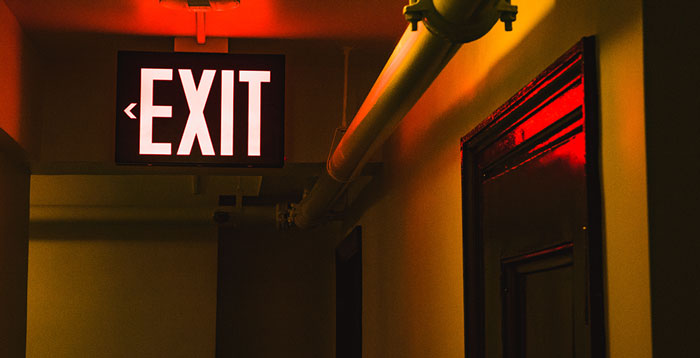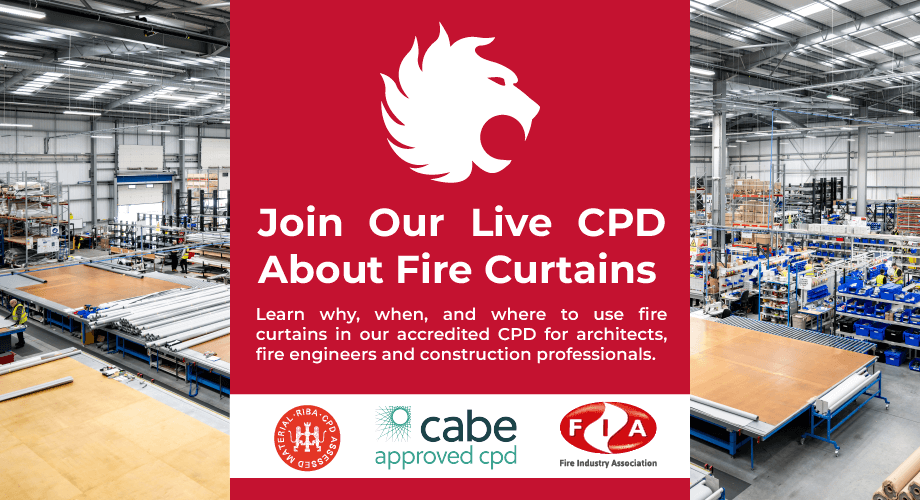Calming Down is Your First Objective
Panic is a natural response to danger, which triggers our fight or flight behaviour – a useful strategy for animals (and ancient humans) in the wilderness, but potentially deadly in an emergency. Your body begins flooding with cortisol, better known as the stress hormone.
It causes heart rates to rise, breathing to become rapid and logical thought to be almost completely eradicated in favour of knee-jerk reaction. It does this by suppressing the parts of your brain responsible for critical thinking, learning and memory – giving executive control to the amygdala, popular name “the lizard brain”.
Your body has evolved over millions of years to become reactive under stress, ready to survive situations it finds scary by running or fighting. The issue is that, when overrun with cortisol, you instantly become bad at solving problems – for example, remembering where exits are and navigating a way out. Decision-making can be extremely poor under stress – and when the situation is life and death, it’s not uncommon to see people do the exact opposite of what they should be doing.
Our primitive strategies for survival are simply incompatible with the modern world, where survival generally depends on solving a series of problems. We’ve developed our environment beyond our rate of physiological evolution. And so, in emergencies – we panic. In an enclosed environment, filling with flames and smoke, you need to be able to solve your immediate problems; breathing safely, avoiding burns and getting outside. You must be calm to do this.
Trying to relax is a paradox in itself, but even the most extreme survivalists would agree that it’s priority number one – enabling you to function in a way that will save your life.
The key to calm is breathing. Panic makes you gulp air rapidly. Controlled breathing is one of the quickest and most effective ways to calm yourself down and return to rational thought. Simply inhale through your nose to the count of three and exhale to the count of six. Don’t worry too much about remembering the numbers though; just try to breathe out for twice as long as you breathe in.
Strategies for Survival
When you visit a large building like a hotel, airport, office block or shopping centre, it’s quite unlikely that you’ll have studied their emergency escape protocol – unless you work there. As a result, you probably won’t have a predetermined escape plan like you would at home.
Best practice is always employed when designing fire escape signage in large structures, even in very old buildings brought up to code. Finding your way out should be easy – illuminated walkways, signs and fire exits give common sense cues for which way to go.
If you can see signs for the way out, calmly follow them until you’re outside.
However – you can’t rule out becoming trapped if part of the structure should fail, or if fire blocks your path. What should you do then?
Calm Yourself
Being trapped in a burning building is terrifying – but as hard as it may be, it’s vitally important to calm down before you do anything else.
Call for Help
Assess your situation and, if you have one with you and it’s safe to do so, use your mobile phone to alert emergency services to your location in the building and that you are trapped.
Buy Time
Use any means you can to try to buy time. You can start by keeping smoke and flames from entering the room. Close any doors leading to burning areas and try to plug gaps that could allow smoke through.
Get Air
If there’s a window, open it – if the window does not open, attempt to break it. Even if the building is too tall to escape from the window, you will at least be able to get air this way.
Get Low
If the room begins to fill with smoke and you have exhausted all options, get as low to the ground as you can – smoke rises, so staying low will keep it away from you for longer.
Next Level Fire Safety
At Coopers Fire, we are always striving to develop fire safety standards. To find out more about our products and services, or to enrol in one of our educational training courses, call us on 02392 454 405 or email info@coopersfire.com.


